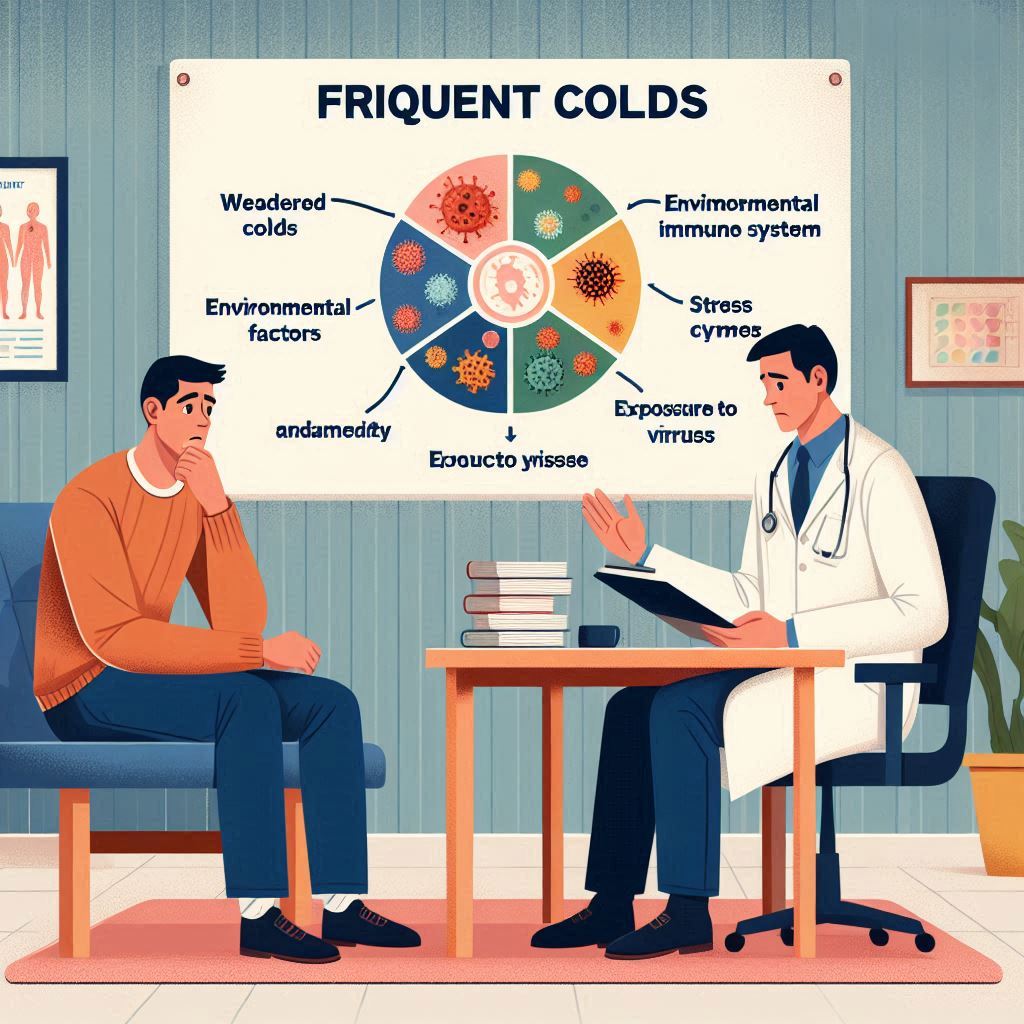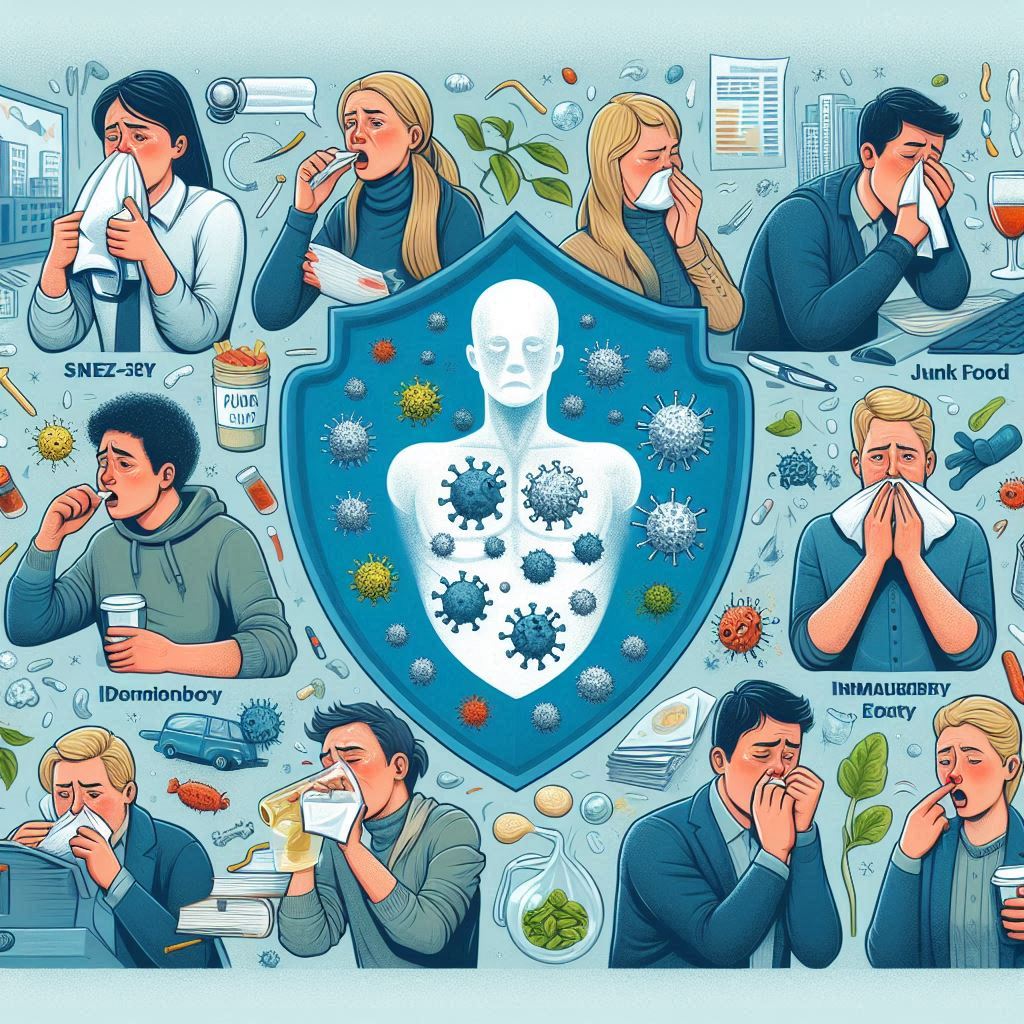Blog Details
Recent posts
Why Do Some People Catch Colds More Often?

- 19-November-2024
- 26 Likes
Catching a cold is one of the most common illnesses people experience, yet some individuals seem to be more susceptible to colds than others. While occasional colds are normal, frequent bouts can indicate underlying factors that go beyond bad luck. This article delves into the genetic, lifestyle, and environmental influences that determine why some people catch colds more often.
1. Genetic Factors: Are You Predisposed?
Your genetic makeup plays a significant role in determining how your immune system responds to infections. Some individuals inherit genes that make their immune systems more reactive or weaker against certain pathogens, including the rhinoviruses that cause colds.
- Immune System Variability: Research has identified variations in the human leukocyte antigen (HLA) system, which helps the body recognize and fight infections. Certain genetic profiles may lead to a weaker response to cold viruses.
- Allergies and Immunodeficiencies: Genetic predispositions to allergies or conditions like primary immunodeficiency can increase susceptibility to respiratory infections.
2. Lifestyle Choices: Everyday Habits Matter
Your daily habits and routines significantly affect how often you catch colds. Poor lifestyle choices can weaken your immune system, making it harder to fend off viruses.
- Sleep Deprivation: Insufficient sleep reduces the production of infection-fighting cells, making you more prone to colds.
- Stress: Chronic stress suppresses immune function by increasing cortisol levels, leaving you vulnerable to illness.
- Poor Diet: A diet lacking essential nutrients, particularly vitamins C, D, and zinc, can impair immune defenses.
- Lack of Exercise: Regular moderate exercise boosts immune function, while a sedentary lifestyle can reduce its efficiency.
3. Environmental Factors: What’s Around You?
The environment you live and work in also affects your likelihood of catching colds. High exposure to germs and other unfavorable conditions can make a difference.
- Crowded Spaces: Working in schools, offices, or public transport environments increases exposure to viruses.
- Air Quality: Poor ventilation or pollution can irritate respiratory passages, lowering resistance to infections.
- Seasonal Changes: Cold and dry air during winter makes it easier for viruses to survive and spread.
- Close Contact: Sharing spaces with individuals who are already sick increases the risk of transmission.
4. Age and Immune Response: A Natural Decline
Your age can influence your immune system's strength. Children are more susceptible due to their developing immune systems, while older adults face a decline in immune function with age.
5. Hygiene Practices: The Frontline of Defense
Poor hygiene habits can significantly increase your chances of catching colds. Simple preventive measures like washing hands, avoiding touching your face, and maintaining personal cleanliness can reduce your exposure to viruses.
Can You Reduce Your Risk of Frequent Colds?
While some factors, like genetics, are out of your control, you can take proactive steps to minimize your risk:
- Boost Immunity: Maintain a balanced diet, exercise regularly, and get adequate sleep.
- Hygiene: Practice good hygiene and avoid close contact with sick individuals.
- Manage Stress: Incorporate stress-reduction techniques like yoga or meditation.
- Vaccinate: Get flu shots and stay up-to-date with other vaccinations to protect against more severe illnesses.
Conclusion
Frequent colds can be frustrating, but understanding the interplay between genetic, lifestyle, and environmental factors can help you identify ways to protect yourself. While you can’t control everything, making healthier choices and improving hygiene can significantly reduce the frequency of colds and improve your overall well-being. Remember, a strong immune system is your best defense against the sniffles!
Recent Post

Persistent Cough: When a Common Cold Becomes a Concern
- 25 February 2025
A persistent cough can signal more than just a common cold. Learn about possible complications, warning signs, and preventive measures to stay healthy. Know when symptoms require medical attention for timely and effective care.

Cough and Cold: Understanding the Basics
- 21 August 2024
Coughs and colds are common conditions that most people experience at some point. While they often occur together, they have distinct causes and symptoms. Understanding these differences can help you manage and prevent them more effectively.